
Breaking News: Unilorin Alumi Association: 'We were warned' - Opinion
Breaking News: Breaking: Court Restrains Oyo Assembly from Further Impeachment Process Against Makinde’s Deputy, Olaniyan
Breaking News: Labour leaders physically assault Ogun journalists for covering strike, harass hospital workers
Breaking News: Congratulations Asiwaju – Osinbajo’s spokesperson accepts defeat
Breaking News: Finalissima: Messi steals show, beats European Champion, Italy
Folarin Jamiu
Few days after I advocated the inclusion of Solutions Journalism into journalism education at an event in Ibadan, the National Universities Commission (NUC) unveiled a new curriculum, Core Curriculum and Minimum Academic Standards (CCMAS) to replace Benchmark Minimum Academic Standards (BMAS) being used for universities since 2007.
And a week after NUC unveiled the new CCMAS, I held a meeting with the international media literacy group comprising journalists and researchers from NGOs, fact-checking, research and tertiary institutions across the world. The meeting which is the offshoot of the International Fact--Checking Network (IFCN) Global Fact 9 Conference in Norway further emphasised the importance of integrating media literacy at all levels of education.
My supervisor, Associate Professor Dele Odunlami of the Olabisi Onabanjo University and the former Nigeria Union of Journalists (NUJ) Lagos chairman, Dr Qasim Akinreti are leading Africa's research community in interrogating trauma literacy and its integration into the curriculum.
Incidentally, the debate is still raging in my department over the desirability or otherwise of introducing courses not stated in the BMAS when the NUC announced this new curriculum. One of the courses introduced by the department is "Reporting Religion" and by coincidence I am presently on a series of training on related issues, facilitated by Code for Africa and The International Center for Journalists (ICFJ).
I was really disappointed when I could not find traces of these areas on the new CCMAS but I was relieved when I noted the ingenuity of the NUC allowing individual universities to contribute 30 percent of the courses designed in line with the philosophy of the institutions and development of their communities.
Though, I would have preferred that these courses be made part of the 70 percent compulsory minimum course units, given their relevance to Nigeria's media environment bedeviled with all sorts of challenges; getting the buy-in of all tertiary institutions to include them on the 30 percent is the way to go now.
Solutions Journalism and problem-infected media space in Nigeria
It is no longer news that Nigeria media climate is problematic and negative oriented given the numbers of negative stories dominating the media space. One of the factors responsible for this pattern of reporting is the way journalism students are trained on what constitutes news value - oddity, conflicts, bizarre etc.
Though, there is an argument that journalists do not invent the problems they are reporting, the efforts made at responding to the problems are not getting their fancy. I consider the foundation on which journalism training is laid as faulty. And the philosophy on which journalism is founded and practiced, is unsuitable to Nigeria's climate.
The Hutchins Commission responded to the failure of the Libertarian media environment and its recommendations gave birth to social responsibility theory. Though the advocacy for a New World Information and Communication Order (NWICO) did not materialise, it was supposed to not only address the imbalance in the information flow between the North and the South but to enable Africans to tell their own story. Even the intervention of Denis McQuail, who popularised the Democratic Participant and Development media theories, has not been adequately internalised and integrated into Nigeria's media operations.
The rise and death of the communication policy in Nigeria has further worsened the need to imbibe the assumptions of these theories in the Nigeria media environment. The abuse of power, corruption, and violation of rule of law has given justification that the only way to bring sanity to governance is the brand of journalism currently practiced in Nigeria - adversarial, combative, partisan, advocacy, fire-brand and problem oriented investigative journalism.
The factory settings of the media in fulfilling its constitutional responsibilities as Fourth Estate of the Realm as enshrined in Section 22 and Part II of the 1999 constitution (as amended) is founded on philosophy alien to the assumptions of NWICO and McQuail on the colouration in which African Media should take. The issue of news avoidance is getting the attention of researchers who are looking for the causal relationship between negative-oriented news and an audience no longer showing interest in news products.
So, how can accountability journalism in Africa be achieved without using the present approaches? I proposed the integration of Solutions or Constructive Journalism into Journalism education. Though I have argued the need for this in previous articles and in news reports, I consider it important to restate this to convince individual departments offering journalism related courses to include it as part of their 30 percent before NUC will review the CCMAS to move it to be part of the 70 percent. Solutions journalism is evidenced-based reporting on the responses to social problems. It is hinged on the four foundations of response to social problems, evidence, limitations and insights. It will enable students exposed to the principles of solutions journalism to look beyond problems in reporting and perform their constitutional responsibility as a watchdog. It will also offer communities referred to as news desert to get the attention of the newsrooms. Solutions Journalism will report about problems and at the same time responses to such problems, the limitations of interventions and insights for anyone who intends to navigate the part of solving similar problems. Its uniqueness lies in its ability to promote accountability journalism in such a way that identifies what is (not) working and provide a framework that will offer those concerns to be properly positioned to address the problems identified by the journalism reports.
In addition, the inclusion of solutions journalism into the curriculum will enable the new generation of journalists to properly situate the concept of newsworthiness and news value along this pattern. Similarly, solutions journalism also has the capacity of returning audience trust in the news product and reducing the rate at which exposure to negative induced stories contribute to depression and pessimism on Nigeria's project to greatness. As revenue of media organisations are shrinking making the business of journalism not to be profitable and enticing as a career part to communication students, the adoption of solutions journalism has shown the increase in revenue based on news organisations that adopted them. If tertiary institutions offering journalism related courses introduce this in their curriculum it will offer the budding journalists the unique selling proposition not only to be employable and contribute to national development but also improve the revenue base of the news outlets they will establish or be working with.
I have experimented with additions of modules into existing journalism related courses (print and broadcast respectively) at Crescent University, Abeokuta, while my colleague who was also a Solutions Journalism Fellow, Dr Rasheed Adebiyi had also successfully experimented with this model at Fountain University, Osogbo. While the capacity of lecturers in Ogun, Oyo and Osun States have been developed to integrate solutions journalism into communication related courses, it is not out of place to extend this to more tertiary institutions in Nigeria.
A clarion call on all Universities offering journalism related courses in Nigeria to include solutions journalism in the 30 percent allowance given by NUC. The value this will add to the programme and building the skills of the students is evidence. The Solutions Journalism Network (SJN) has developed resources to aid the mounting of solutions journalism courses in our universities.
In the Era of "Fake News", Fact-Checking and Media Literacy is a Must in Curriculum
Do you think it will be fashionable, in this era of "fake news", for any university offering journalism related courses not to develop the verification and fact-checking skills of its students? Can you train a medical doctor without the skill of diagnoses? Can you produce a lawyer without the skill of differentiating fact from fiction? So, the idea of mainstreaming fact-checking and media literacy into the curriculum of universities offering journalism related courses is not out of place.
The challenge of information disorder - with labels such as fake news, misinformation, disinformation, mal-information, satire, propaganda, imposter contents especially in the digital public sphere - is universal. Nigeria is having its fair share of this challenge in all spheres of her national life - politics, religion, governance, economy, social, tribal etc. There has been hue and cry about how this phenomenon is not only polarising the nation but also frustrating efforts at putting the nation back on track. There have been different proposals on how the virus of "fake news" could be curtailed including using a legal approach (proposal of death sentence) to stem the tide of the alarming rate at which it is being weaponised to create and spread fear, discord, diseases and even death.
Why should we then as intellectuals ignore a well acceptable solution to this problem? Fact-checking and media literacy are undeniable models in combating the challenges associated with information disorder which has also found its way to the mainstream media.
Fact-checking was institutionalized into the Nigeria media operations in 2016 by Africa Check and it has now been expanded by Centre for Journalism Innovation and Development (CJID) with Dubawa fact-checking project. I conducted a study in 2020 documenting the efforts of media organisations in Nigeria at combating information disorder. The findings exposed challenges encountered by these organisations in responding to the problem. One of the challenges is the lack of verification and fact-checking skills among journalists in Nigeria, inadequate professional fact checkers and geometric spread of misinformation with noncorresponding growth of the fact-checking landscape. Purveyors of disinformation take advantage of media illiteracy of Nigerians to up their games. Thereby making their victims willing tools for their dastardly act.
A study conducted by eight communication scholars including the founder of Africa Check, Peter Cunliffe-Jones also noted the low mark Nigeria scored integrating media into schools' curriculum. Part of the research titled: "The State of Media Literacy in Sub-Saharan Africa 2020 and a Theory of Misinformation Literacy", explains the limited elements of media and information literacy (MIL) that are included in the curricula in the seven countries including Nigeria. "The authors propose six fields of knowledge and skills specific to misinformation that are required in order to reduce students’ susceptibility to false and misleading claims. Identifying obstacles to the introduction and effective teaching of misinformation literacy, the authors make five recommendations for the promotion of misinformation literacy in schools, to reduce the harm misinformation causes."
As it stands, media, fact-checking and non governmental organisations have over the years invested in media literacy projects but tertiary institutions in Nigeria have not done much in this respect. Aside from researching this phenomenon, tertiary institutions offering journalism related courses have the obligation to mount fact-checking and media literacy courses to bridge the knowledge and skill gaps in the Nigeria media information ecosystem. We should provide locally made reading and course materials for specific needs of our tertiary institutions. We can build on UNESCO's training handbook manual on fact-checking edited by Professor Lai Oso of the School of Communication, Lagos State University (LASU).
Be it public relations experts, advertising practitioners, development communication experts or professional journalists, fact-checking/verification skill is a must. So, if this is the case, asking departments, colleges or faculties offering communication related courses in integrating fact-checking and verification into the 30 percent course allowance is timely. The long term goal is to convince the NUC to include fact-checking and media literacy to the 70 percent in the CCMAS.
If Hazard of Journalism is so Pronounced, Why would Trauma Literacy not Included in its Curriculum?
To justify why trauma literacy should be included in communication related courses in the CCMAS by the NUC, I will quote extensively from the call for papers for an international conference and knowledge exchange event scheduled for 15th to 16th June, 2023.
It is organised by the Journalism Education Trauma Research Group (JETREG) and hosted by the Department of Journalism Studies at the University of Sheffield, UK in partnership with the University of Lincoln, UK.
The conference titled: “Living to tell the tale – building community resilience in journalism” responds to the persistent work-related problem of emotional and psychological stress in journalism practice:
"Journalists are one of the first responders to traumatic events and the last to leave, but they are the least likely to receive training in trauma informed literacy and resilience, unlike their counterparts in the police, nursing, ambulance services and fire brigade."
"Previous studies show that many journalists are reporting either post traumatic stress disorder (PTSD), associated symptoms, depression, and/or substance use while many journalists feel ill-prepared for assignments, which involve reporting on critical incidents and events that carry a risk of being traumatised."
"Some scholars have blamed journalism’s deep-seated objectivity norm, which is central to journalism education and the ‘macho’ views to be found in some newsrooms, as one of the reasons why journalists are reluctant to talk about the emotional and psychological effects of exposure to traumatic events on their health and wellbeing."
"Studies show that journalism students are also ill-equipped to deal with their own emotional reactions and to assess what they experience from an ethical perspective."
"The academic conference aims to highlight current multidisciplinary research into trauma, emotion and resilience in journalism and media work; psychological and emotional safety of journalists/media workers, pedagogical approaches and best practice to trauma literacy in journalism education/training and the various experiences of trauma, emotional labour or (un)happiness in journalism/media."
"We also seek the perspectives of scholars from different disciplines, practicing journalists/freelancers/editors on coping strategies and/or newsroom support that may have pedagogical relevance."
Six out of the 13 topics of the conference relevant to this advocacy are: Trauma informed journalism practice and pedagogy and challenges to normative assumptions around objectivity and detachment; Skills and capacity to cope with the effects of exposure to traumatic events; Addressing barriers to trauma literacy in journalism practice and education.
Others are: Emotional literacy and psychological safety in journalism; Best practices and innovation in journalism pedagogy in building emotional resilience; and Mental health/wellbeing among journalists and journalism students/trainees.
So, if journalism safety is of interest to universities offering communication related courses, then the integration of trauma literacy should be considered in the new CCMAS.
Why NUC should include Reporting Religion in New Journalism Curriculum
In the first semester of the 2022/2023 academic session, the academic planning unit in the University in which I lecture threw up a debate over the desirability or otherwise of mounting a course not specifically included in the BMAS as handed down by the NUC.
One of the courses introduced by Dr Kola Adesina who heads the Department of Mass Communication of Crescent University is "Reporting Religion". My colleague, Mrs Bolanle Ismail has been teaching the course since 2017. And recalled then that when the NUC team led by Professor Umaru Pate came to accredit the department, questions were raised on the course but the team applauded the Department for its ingenuity in introducing the course given its sensitivity in today's Nigeria fragile democracy threatened by tribal and religious rhetoric in the media.
Incidentally, I was part of a series of training on "Religious Freedom Reporting" organised by The International Center for Journalists (ICFJ), in partnership with Code for Africa (CfA). The training held between November and December 2022 focused on religious freedom reporting, digital security, data journalism and trauma-sensitive reporting on religious freedom issues in Nigeria.
The topics covered during the training include: Introduction to Religious Freedom Reporting plus Digital Security; Data Journalism and Religious Freedom Reporting; Trauma Sensitive Reporting on Religious Freedom Issues; and LGBT and Religious Freedom Reporting.
The training really exposed my inadequate knowledge on reporting religion despite my over a decade experience as a journalist and researcher. Issue of religion has polarised Nigerians at all fronts including the newsrooms where there are adherents of major religions. Nigeria's diversity in terms of her larger ethnicities and multiple religions which should be an opportunity is being deployed by individuals and groups for selfish purposes. The reportage of religious related issues had steered controversies, violent confrontations and ethnic, tribal and religious conflicts in Nigeria.
How well trained are journalism students to navigate this muddy water of religion? Journalist is described as someone who knows something about everything and everything about something. To what extent is this assumption correct about Nigerian journalists' basic understanding of tenets of different religions as practiced in Nigeria.
As a Muslim and a journalist, I was really at a loss when I was tasked to cover a synod of a church in 2009. I struggled trying to figure out the meaning of synod in itself, the terminologies used in the service and rituals. I keep asking for clarifications in order not to mislead our listeners. Despite my efforts, thanks to my boss, Mr Tokunbo Oloruntola, a Christian, who spotted the factual errors in my report and corrected them before it was included in the news bulletin.
Similarly, I have entered into the inner meeting of the Oodua Peoples Congress (OPC) at the June 12 Cultural Centre in Abeokuta, the Ogun State capital, only for me to ran away after a burning sensation in all parts of my body. I would later be counseled that I need a special tutorial from members before attempting to enter the venue.
When I covered Lisabi Day (annual festival of the people of Egba of Ogun State) in 2015, I committed what my "traditional" teachers called sacrilege in the course of my journalism assignment. First, I was one of the first few people who saw the Alake of Egbaland (eyes to eyes) as he left the palace for an onward journey to the Igbo Lisabi. I told my teacher that I observed that the monarch's eyes were extremely red beaming "fire" but he responded that I was lucky to be alive to tell the story. At another instance, I was reporting live on radio about the "secrets" in Igbo Lisabi when one my "traditional" teachers cautioned against such disclosure.
These are my personal experiences of the ignorance to which I report religion which I have little or no understanding of. If I had offered reporting religion as a course during my undergraduate and postgraduate studies as a Mass Communication student, I might not have fallen into those errors.
And of recent, I commended Fisayo Soyombo (especially among my students and on my social media handle) investigative reports he did for his platform (Foundation for Investigative Journalism - FIJ) tagged #ProphetsOfTheirPockets. The reports exposed clerics who gave false prophecies in exchange for cash and material gains. I really commended the undercover he did to expose clerics who used the pulpits as conduit to make money by giving false prophecies. As a victim, I really related to the expose!
However, as a Muslim, I observed fault lines in his reports and influence of his knowledge as a Christian and inadequate knowledge about Islam in the course of interpreting his observations during the undercover.
The first fault line was noted in his consistent quotations from the Bible to start an episode of his report on Churches and clerics he investigated. But a similar approach was not adopted in the introduction of the reports of the Mosques and clerics.
Secondly, while Christians adopt the use of prophet to identify the modern day clerics, it's a taboo for a Muslim cleric to adopt such nomenclature but Fisayo put both Christian and Muslim clerics in the same frame.
Thirdly, while it might be appropriate to use his knowledge as a Christian to discern appropriateness or otherwise of the practice of Christian clerics and Churches he investigated, he would need "trusted" Islamic scholars to define such for Islamic clerics. This is absent in his report. This is not a justification that his reports about the Islamic clerics are not factual.
There are other minor fault lines noted in the reports which primarily was due to his inadequate knowledge about the rituals of Islam.
I go to this extent to use my personal experiences and critique of Fisayo's investigative reports in order to justify why the NUC should include Reporting Religion in journalism related courses in the new CCMAS.
This is my take on the recent pronouncement of the policy of the NUC on the review of the University's curriculum as it relates to media and communication related courses. It is highly desirable to mainstream Solutions Journalism, Media/Trauma Literacy, Reporting Religion into the new NUC's curriculum. The introduction of these courses will definitely enhance the quality of the programmes under the communication and media studies.
NUC is responding to changes
The academic communities in Africa must commend the ingenuity of the Professor Abubakar Rasheed led NUC team for coming up with the review of the Nigeria Universities' curriculum at a time when there has been continuous need to tinker with the BMAS in operation. The media, information and communication ecosystem continue to change in the face of technological, political, social and economic realities and the teaching of courses must make future professional industry fit.
So, the introduction of the CCMAS by NUC is the right step in the right direction and the dynamism in the freedom given to universities to introduce 30 percent of the courses in line with their mission and vision is commendable.
The Universities regulatory body should continue to establish handshake between the Town and Gown in developing Curriculum that will produce students who would be properly integrated into the industry. The professionals need to be further involved to enable Universities to know the required skills that are needed by the students in order to be relevant in the constantly changing media industry. In order to achieve this, I call for the adoption of the recommendation of the Vice President, South-West zone of the Association of Communication Scholars and Professionals of Nigeria (ACSPN), Professor Rotimi Olatunji. During the pre-conference press conference of the association in Abeokuta in 2019, Professor Olatunji called for a policy that will see professors doing their sabbatical at reputable media, public relations, advertising and other communication outfits.
The NUC should continue to be flexible in tweaking its curriculum as a way of meeting the local, national and international needs of all stakeholders.
Folarin Jamiu is currently a lecturer and researcher in the department of Mass Communication, Crescent University; and PhD candidate at the Olabisi Onabanjo University, Ago-Iwoye, Ogun State, Nigerian. He can be reached on folarinjamiu@gmail.com +2347033883993
Newsletter

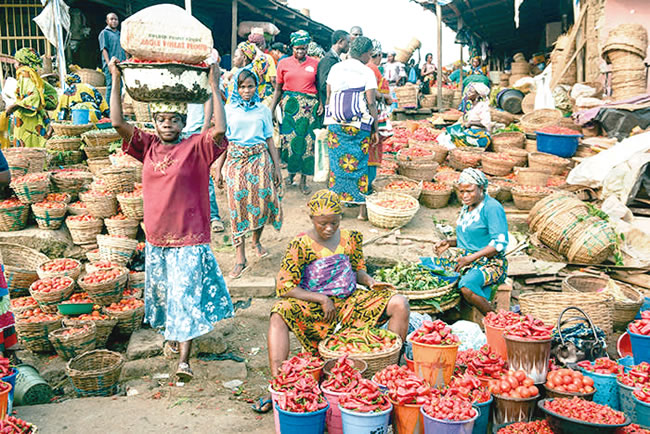
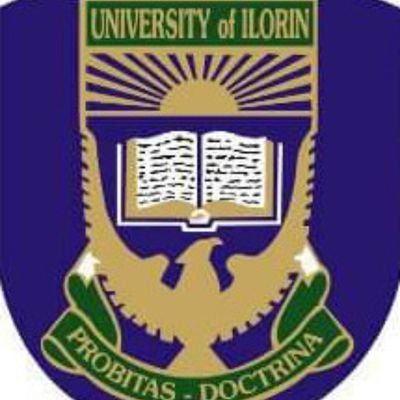
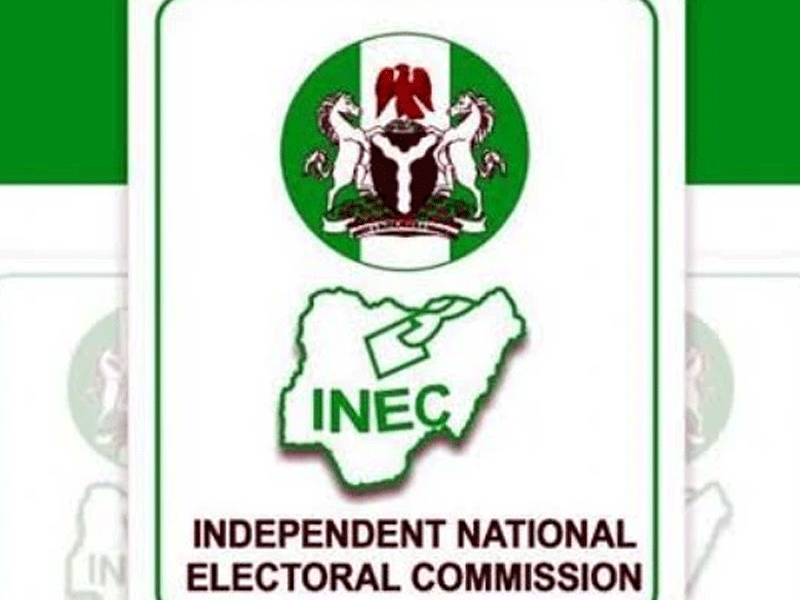
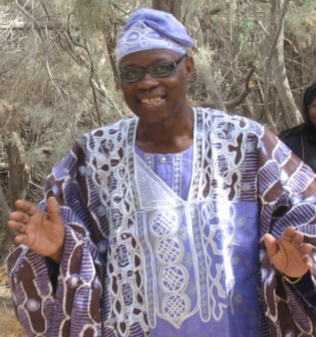
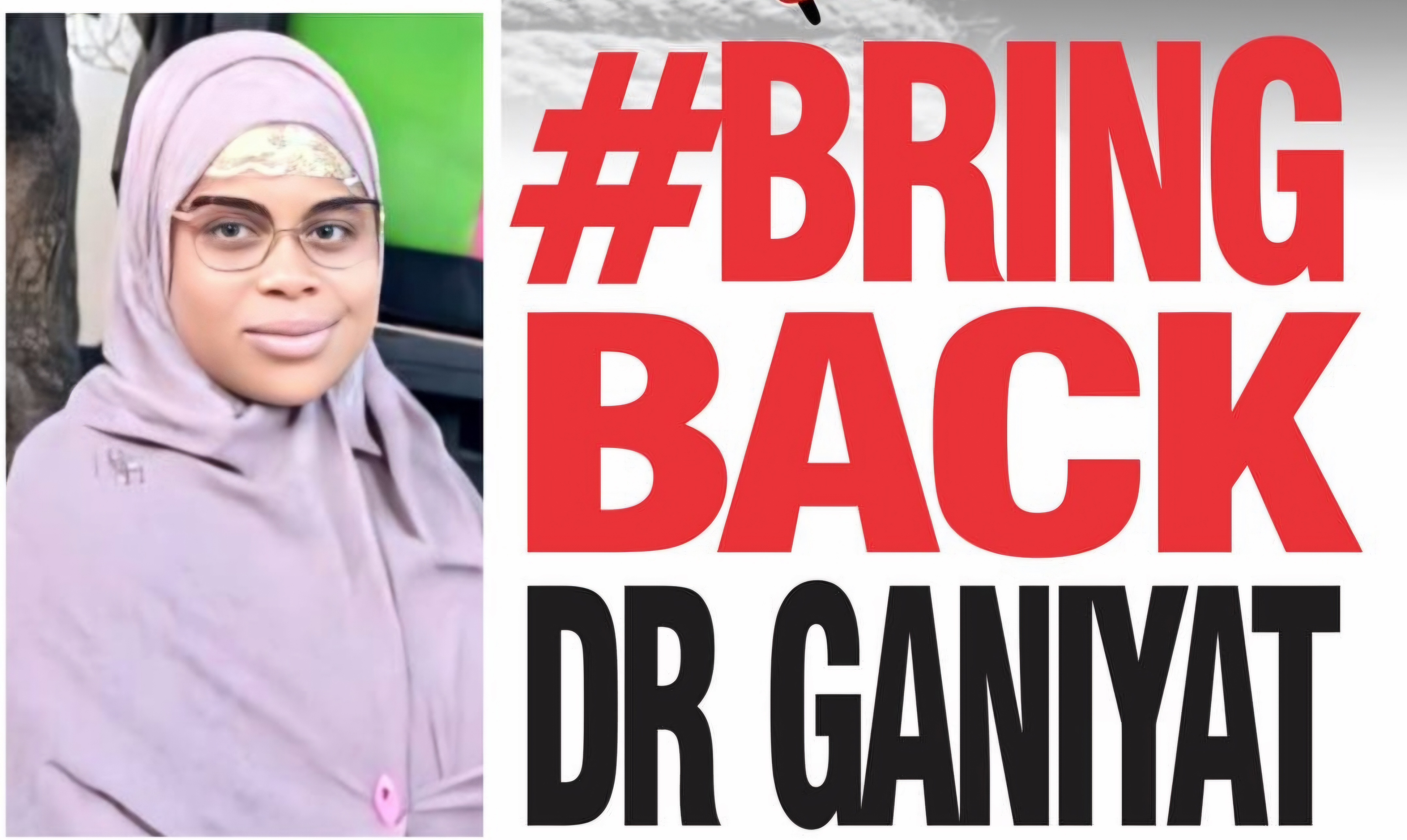
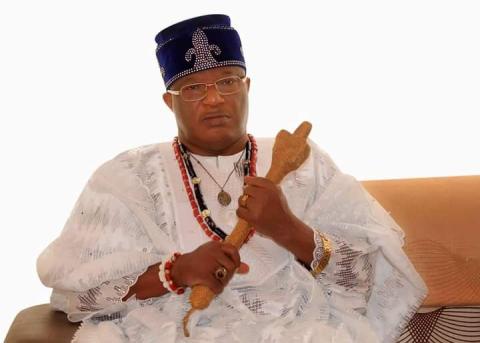
We are not gonna make spamming
Copyright By @ HorizonTimes - 2026
BACK TO TOP